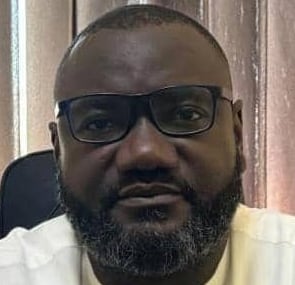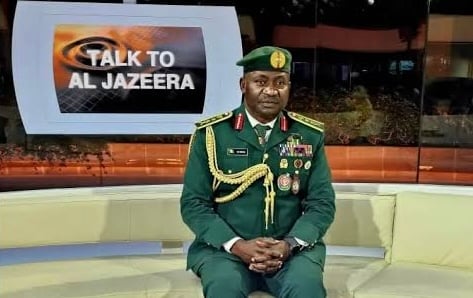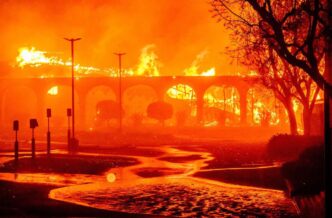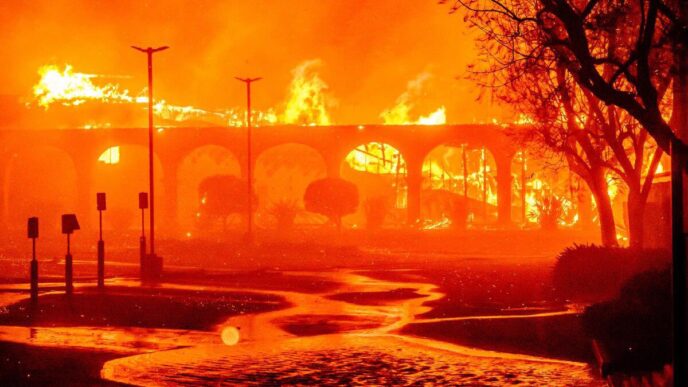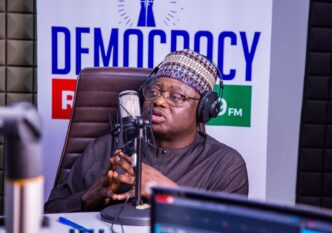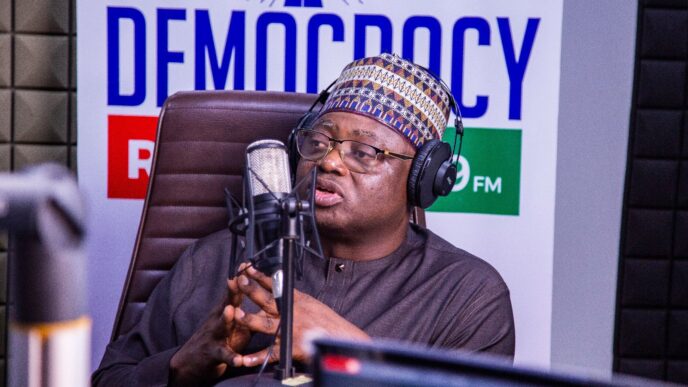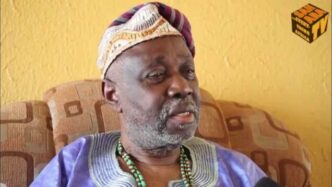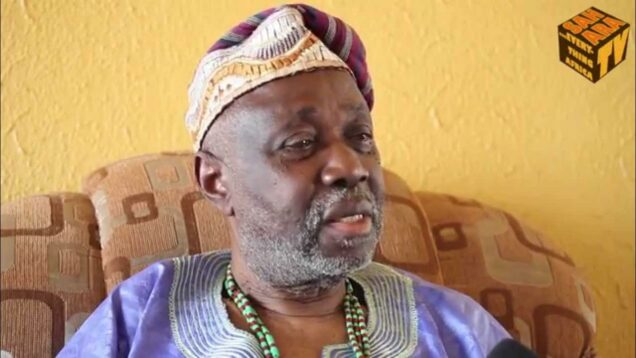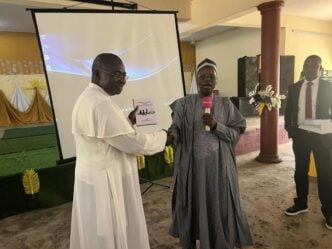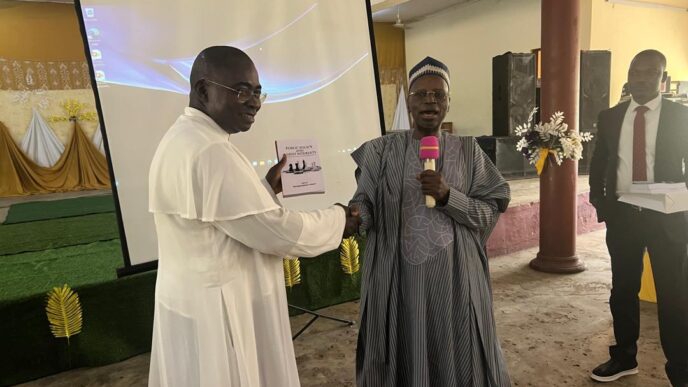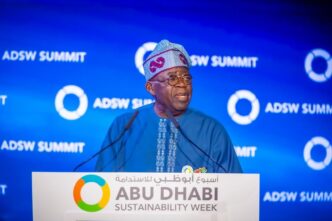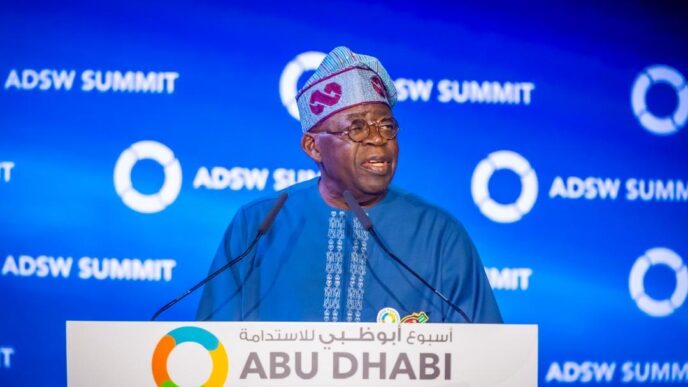A recent interview on Al Jazeera featuring General Christopher Musa, the Chief of Defence Staff (CDS), has left an indelible mark on my perception of military leadership in Nigeria. Despite the commentary on corruption, human rights violations, and operational lapses within the Armed Forces, General Musa’s poised demeanour and insightful responses were apt and inspired pride and confidence in military operations across the country, and noteworthy is the Boko Haram insurgency that festered for several years.
Al Jazeera’s Neave Barker posed incisive questions, but General Christopher Musa nailed the interview. He drew a clear distinction between conventional and asymmetric warfare, emphasizing the need for a multifaceted approach to combat Boko Haram’s insurgency. The CDS’s thoughtful responses demonstrated an in-depth understanding of asymmetric warfare. He illustrated the comprehensive approach to addressing the insurgency, and the attendant successes recorded by the Nigerian Military over the years. He also acknowledged that the transition from conventional warfare to asymmetric warfare presented challenges at the early stages of the insurgency. This was the case before the military gained ascendency over the Boko Haram insurgents in 2015 and reclaimed territories hitherto under their control. This distinction is crucial, as conventional warfare tactics may not be effective against an insurgency that employs unconventional methods.
Conventional warfare and asymmetric warfare are fundamentally distinct, making it unfair to evaluate the success of the Nigerian military in the Boko Haram insurgency from the lens of conventional warfare. This was highlighted in an interview granted by the former Chief of Army Staff, Lt Gen. Tukur Buratai in 2021. The former army chief said the Boko Haram insurgency may not end in 20 years because the terrorists have, for a long time, indoctrinated the people, making it difficult to defeat them within a short period. I agreed with his position. It is important to understand that insurgencies often arise from a complex interplay of ideological motivations that drive groups to challenge established political orders. And the thought that such a challenge can be addressed within a short period is wishful thinking.
Numerous examples across the globe buttress this position. For example, the Revolutionary Armed Forces of Colombia—People’s Army (FARC) is one of the oldest insurgent groups in the world. They mounted a campaign against the government of Columbia for over 53 years. There is also the Muslim Brotherhood, founded in Egypt in 1928, to establish a pan-Islamic state (Caliphate) uniting Muslim countries under one Islamist leadership. Al-Shabaab has been in existence since 2003, marking a 22-year conflict in Somalia and East Africa. It is also important to understand that asymmetric warfare involves unconventional tactics, where belligerents exploit unlawful methods to counter their adversaries’ strengths, often violating the laws of armed conflict. Some of the unconventional tactics include hostage taking, kidnapping, attack on women and children, seizing territories and establishing caliphates, and attacks on critical government infrastructures using the hit-and-run strategy of Guerrilla warfare.
Advertisement
For example, the use of anti-aircraft weapons against humans is a violation of humanitarian law, causing unacceptable harm to civilians and combatants alike. Such indiscriminate and disproportionate attacks contravene fundamental principles of distinction and proportionality and are unequivocally condemned under international humanitarian law. Conventional forces, like the Nigerian military, are bound by these laws, while non-state actors like Boko Haram insurgents operate outside these constraints. In the context of the Boko Haram insurgency, there’s evidence that these insurgents deploy anti-aircraft weapons against both the Nigerian military and unarmed civilians. However, the Nigerian military is restricted from retaliating in kind due to humanitarian law. This restriction creates complications. When insurgents use unarmed civilians as human shields, the military cannot engage them until civilians are out of harm’s way. Engaging in such situations would lead to accusations of crimes against humanity from human rights groups. This dynamic underscores the challenges conventional forces face in combating non-state actors in asymmetric warfare.
The CDS response to the issue of military airstrikes killing unarmed civilians was quite telling. He acknowledged that operational lapses can occur in war situations, but emphasized that such incidents are not unique to Nigeria. He cited examples from other countries where similar mistakes have happened. The CDS also put things into perspective by highlighting that Nigeria has been engaged in warfare for over 15 years, and despite this, the number of operational mishaps has been relatively low. At this point, I noticed the uneasiness of the host. He was being lectured in my opinion. As funny as this might sound, it was the fact. He was up against a decorated general who earned his stripes as an infantry officer with several decades of experience in warfare. I must confess that I felt a sense of pride in the CDS’s composed and insightful responses throughout the conversation.
The host countered with a barrage of allegations, asserting that the military’s successes against Boko Haram have been eclipsed by egregious human rights abuses. Specifically, he cited claims that over 10,000 Nigerians, including women and children, have perished in military detention facilities in North East Nigeria. Furthermore, he alleged that thousands of civilians fleeing Boko Haram’s hostility have been harassed by the military.
Advertisement
Please permit me to reproduce the CDS response. “It is not in our character or DNA to do such a thing. I have heard about these allegations severally. Just a reminder, I was the theatre commander in North East Nigeria and there was this allegation by Reuters on the Nigerian Military forcefully carrying out abortions on civilians. I requested the Chief of Defence Staff to invite the Human Rights Commission to set up an independent investigative committee to investigate because we were tired of some of the unfounded allegations that were always coming in when we were making progress. A commission was set up, I testified, likewise other officers, the committee was given unfettered access to our facility and guess what? Nothing of such was found.”
The CDS interview was a masterclass in confidence and strategic communication. He seized the initiative by inviting Al Jazeera to visit military facilities in Nigeria. This bold move demonstrated a commitment to openness and a willingness to dispel doubts about military operations in the fight against the Boko Haram insurgents and other non-state actors. Also, his stance on foreign military bases in Nigeria is well-reasoned, considering the complex geopolitical implications. His assertion that “Allowing foreign boots on Nigerian soil would assume the liabilities of other nations, rendering Nigeria vulnerable to proxy wars and attacks from foreign adversaries” highlights the potential risks. Nigeria’s cautious approach to foreign military presence has historical roots. In 2007, it declined to host the US African Command (AFRICOM), citing sovereignty concerns. Furthermore, the CDS highlighted the importance of joint training exercises and unrestricted access to arms procurement by the Nigerian military from arms manufacturers around the globe. He drew a clear line between cooperation and dependence.
The interview showcased exceptional expertise in policy, strategy, and warfare. The CDS navigated complex topics, shedding light on the international conspiracy surrounding the activities of non-state actors in Nigeria. When asked about those perceived interests plotting to destabilize Nigeria, the CDS deflected the question, saying, “I don’t know, you don’t know, your guess is as good as mine.” This response demonstrated his tact and ability to convey a message without revealing sensitive information. He also highlighted the intricate issue of insurgent funding, emphasizing that it involves international transactions. This raises critical questions about global networks supporting these groups and the need for collaborative international efforts to combat terrorism.
This strategic engagement is a welcome development. The interview was strategic and well-delivered, and the timing was apt.
Advertisement
Ocheja, a military historian and doctoral researcher, is an alumnus of the Nigerian Defence Academy.
Views expressed by contributors are strictly personal and not of TheCable.
Add a comment
